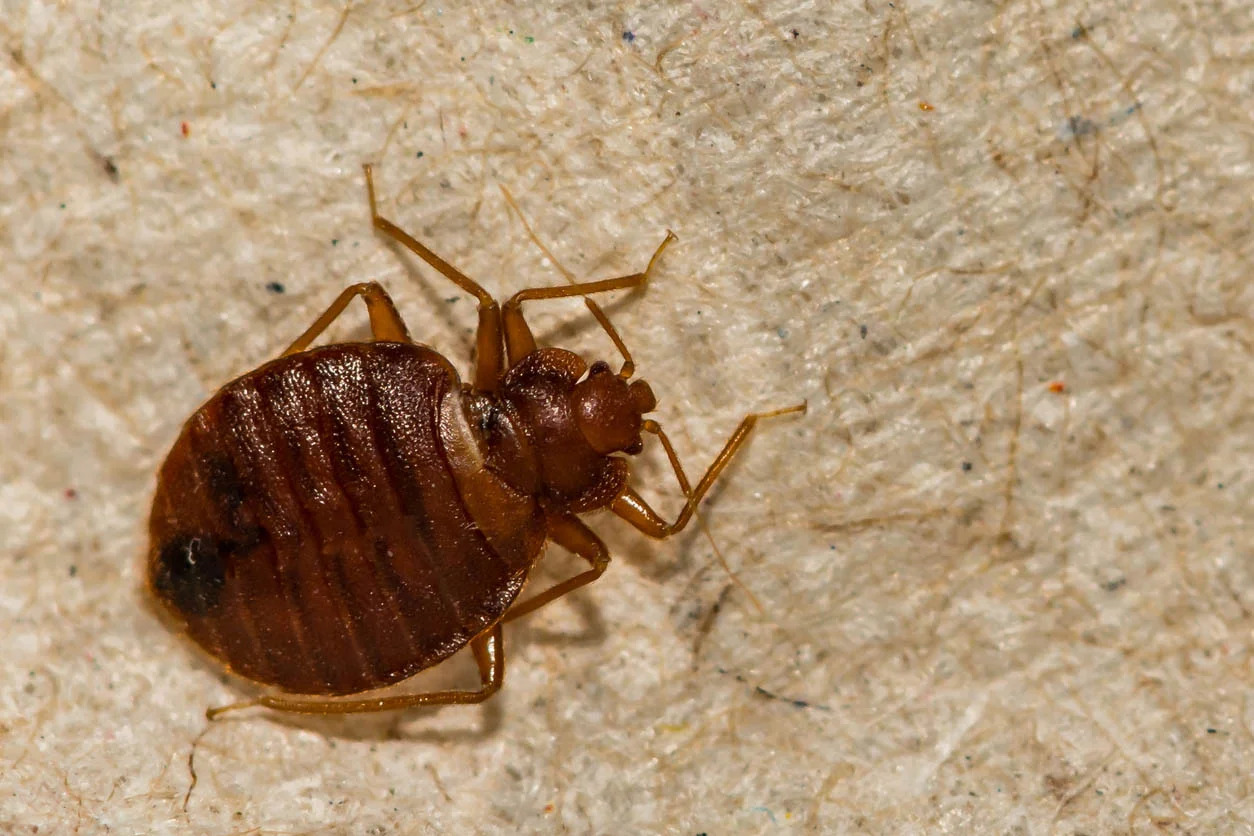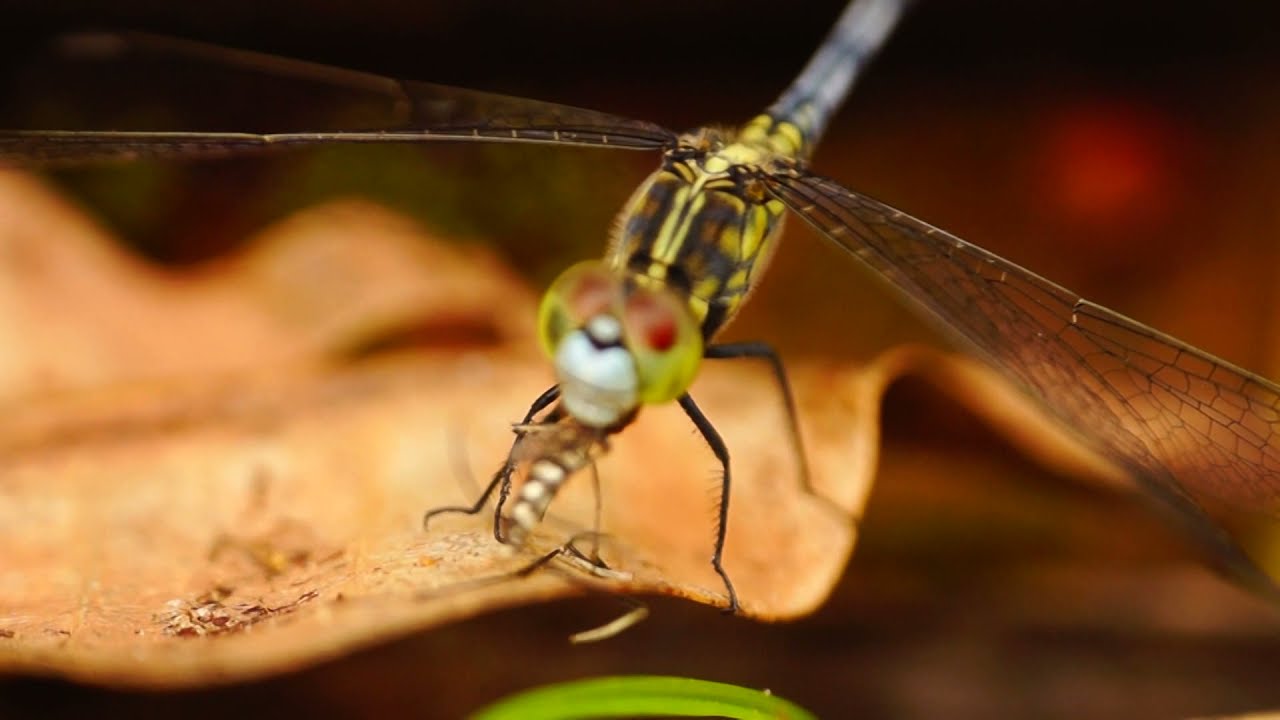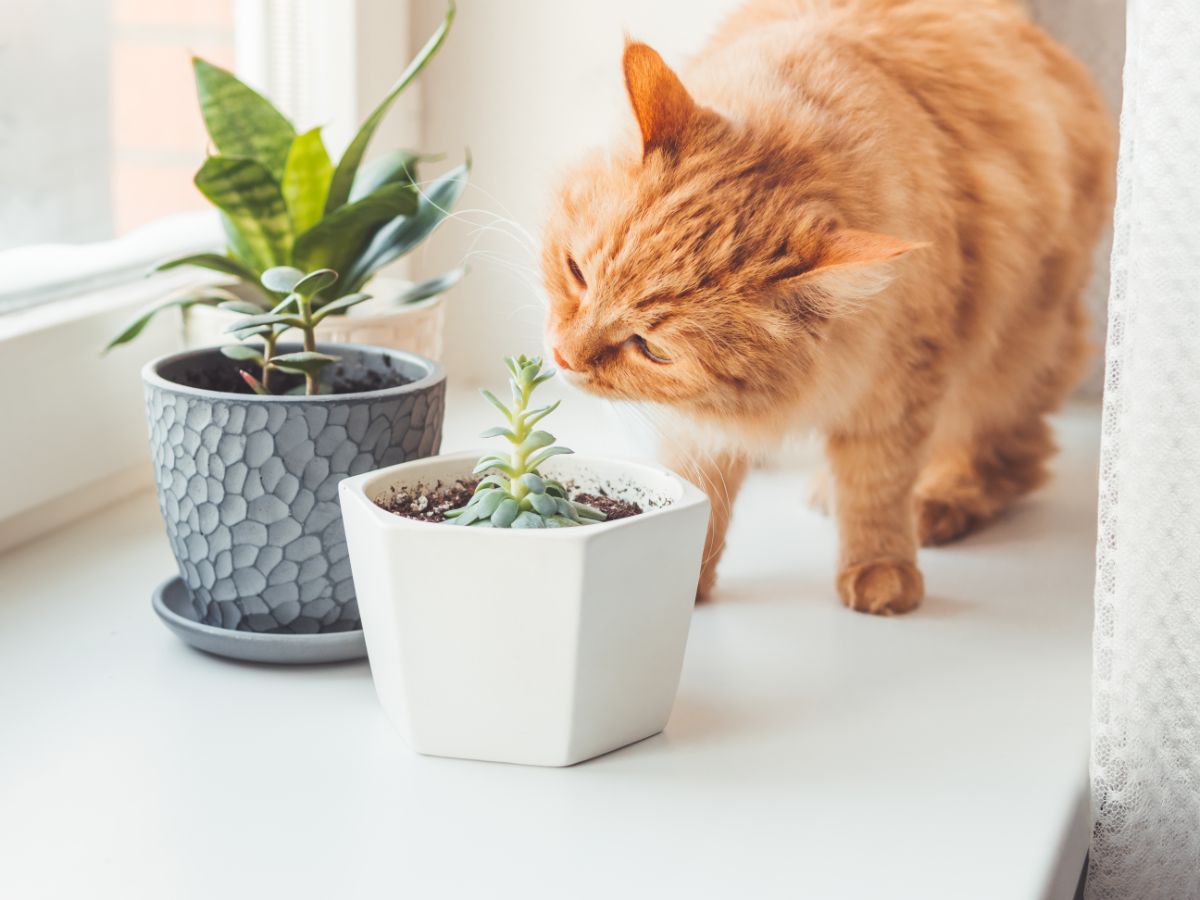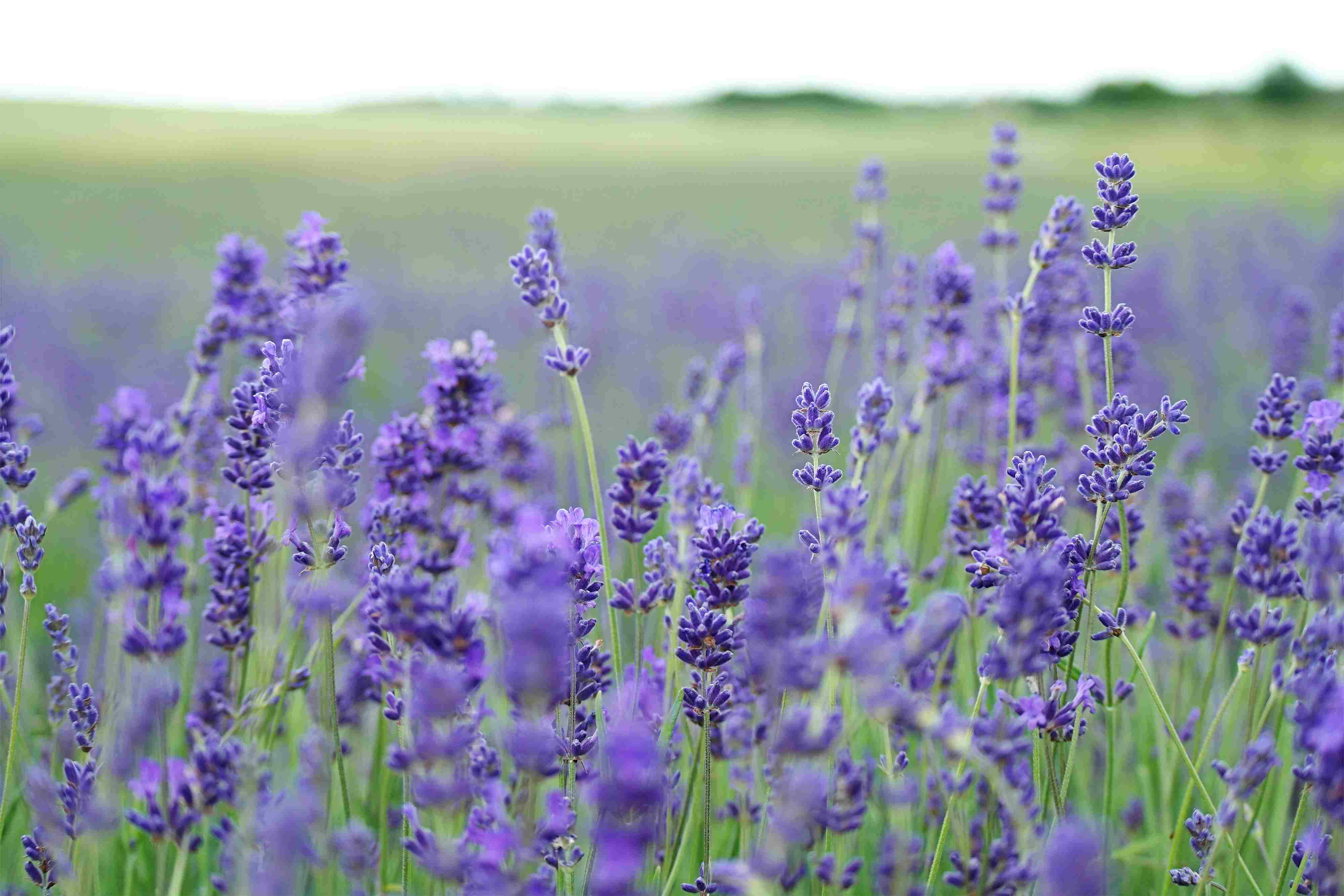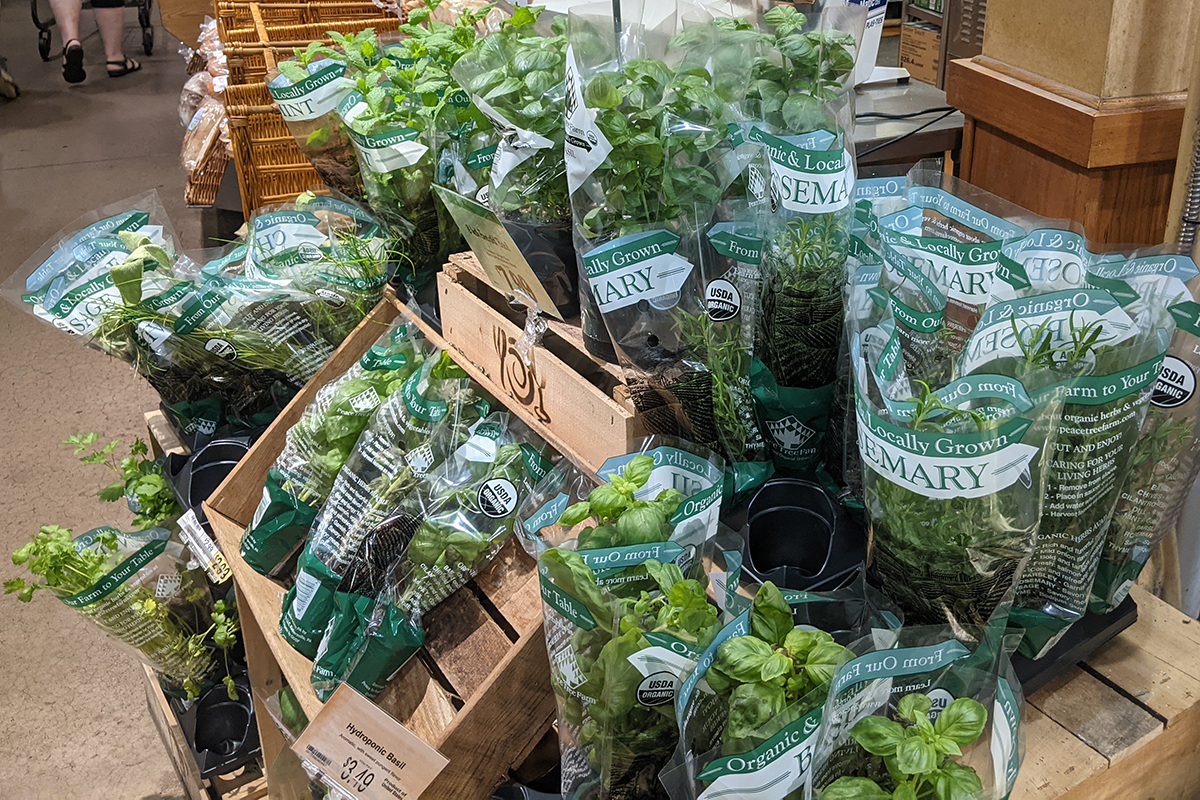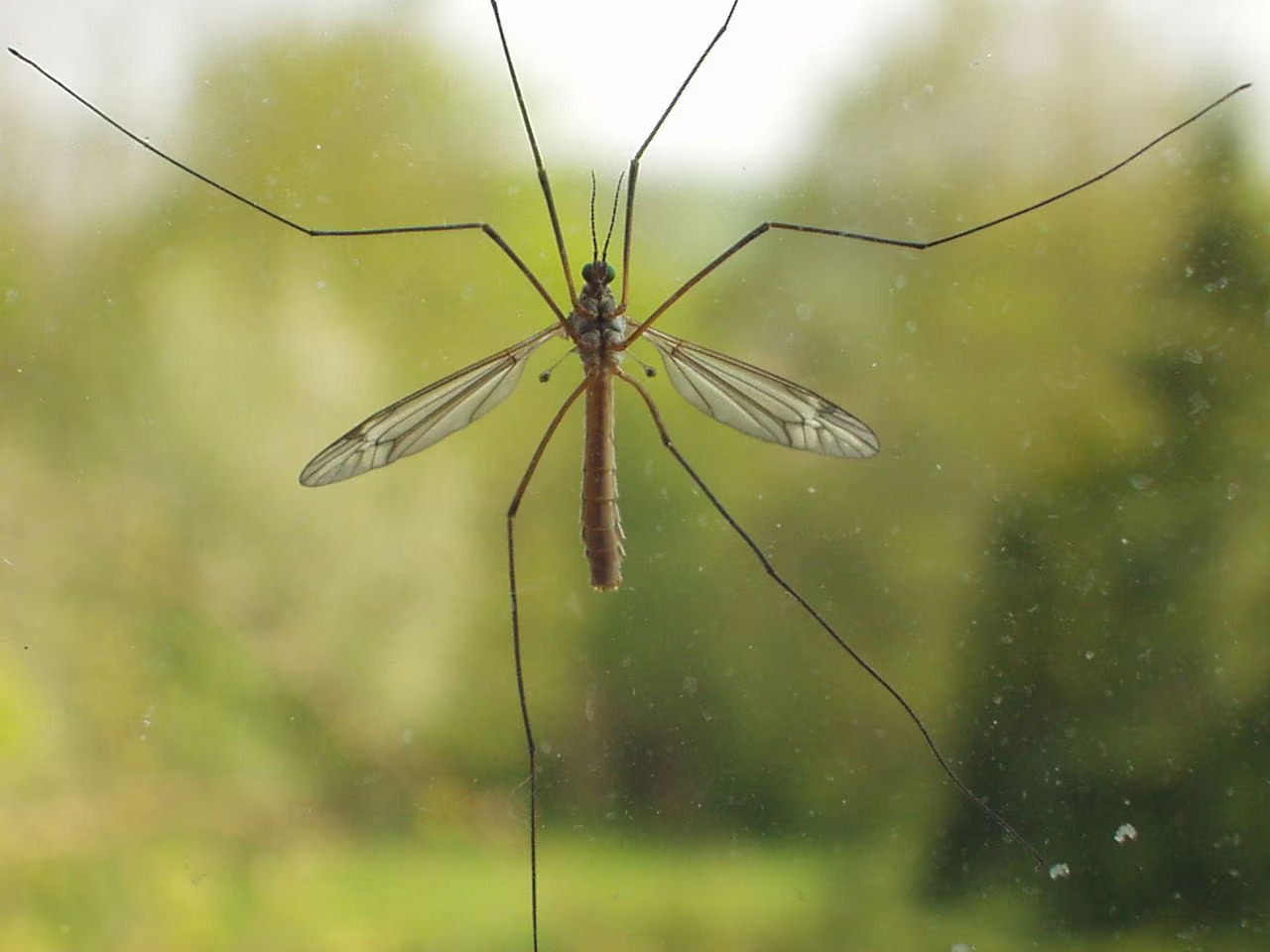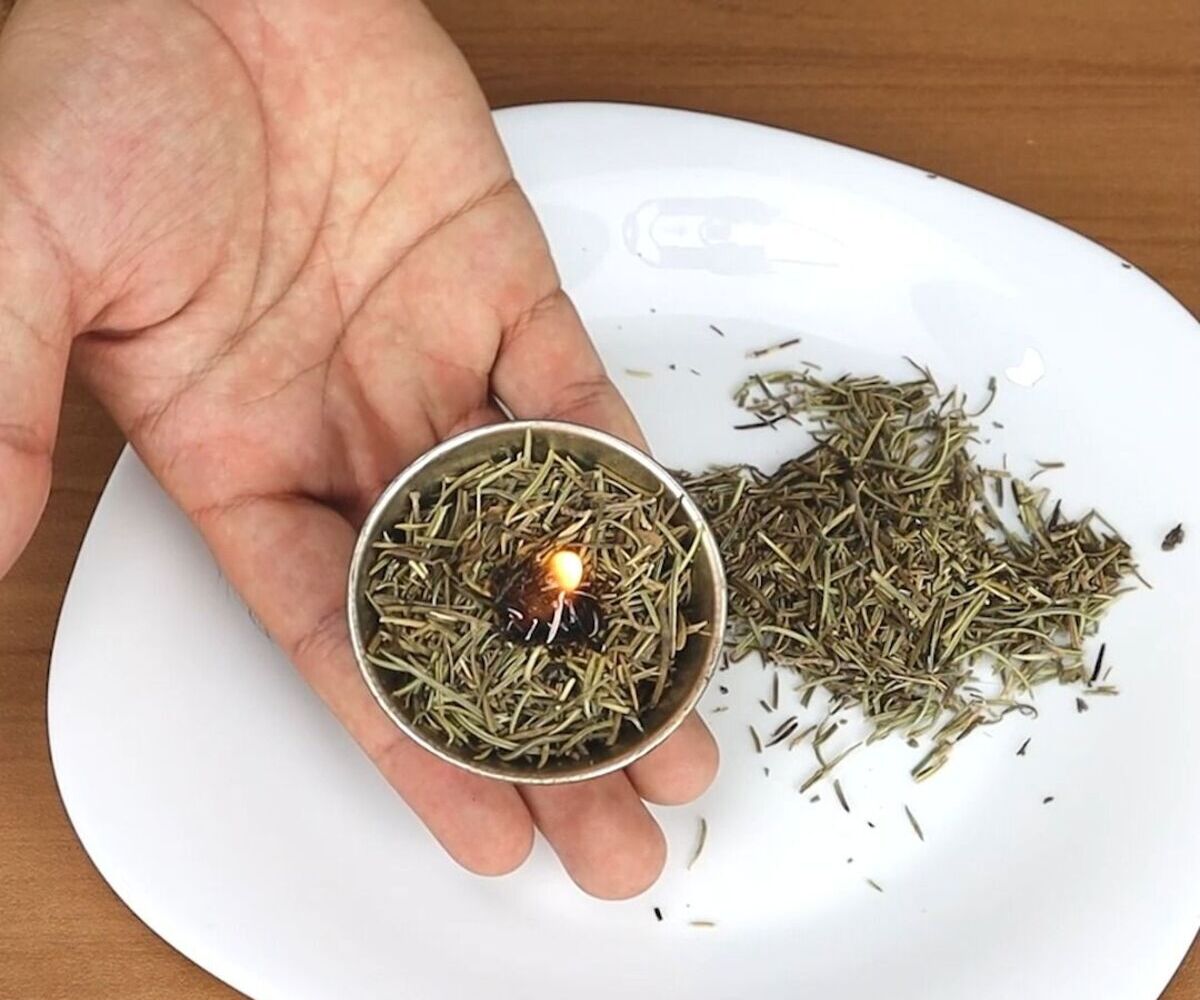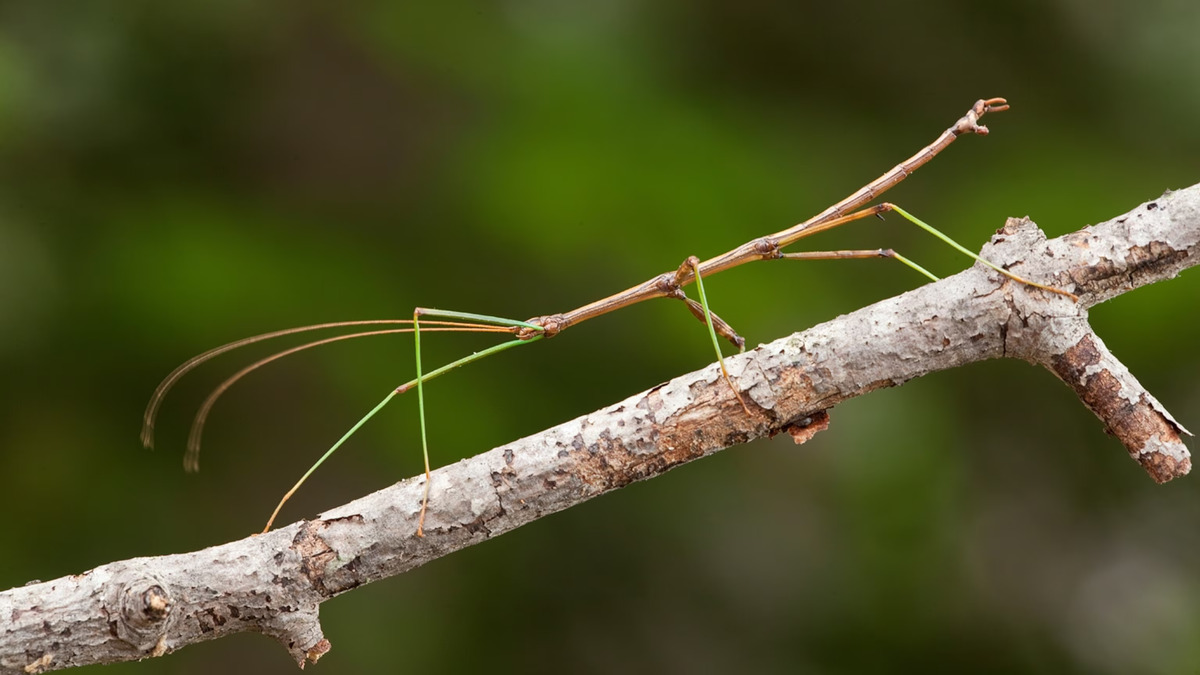Home>Gardening News and Trends>Gardening Trends>What Herbs Keep Mosquitoes Away
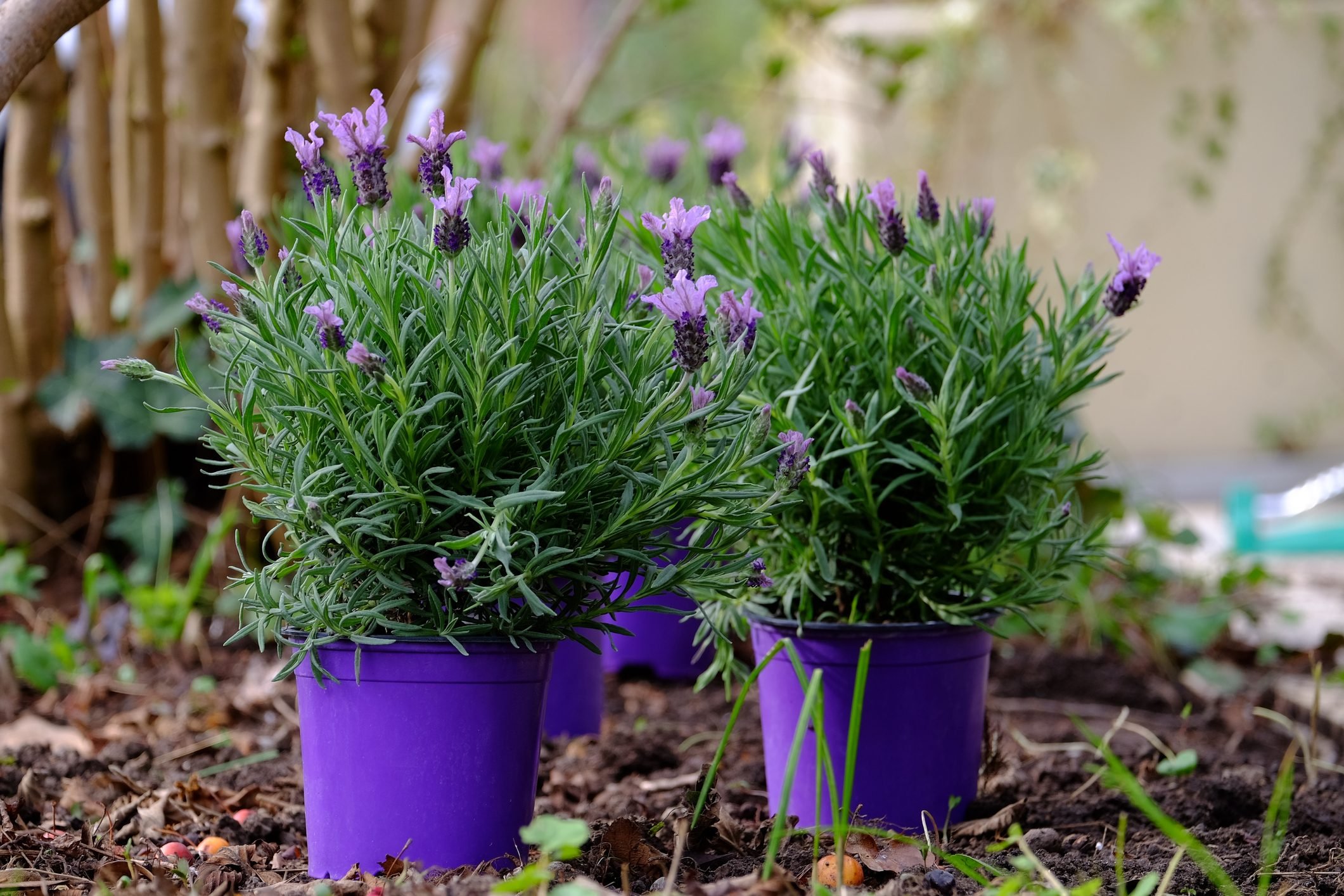

Gardening Trends
What Herbs Keep Mosquitoes Away
Modified: January 29, 2024
Discover the top gardening trends that actually keep mosquitoes away with these powerful herbs. Upgrade your garden and say goodbye to those pesky bugs!
(Many of the links in this article redirect to a specific reviewed product. Your purchase of these products through affiliate links helps to generate commission for Chicagolandgardening.com, at no extra cost. Learn more)
Table of Contents
Introduction
Mosquitoes can be a nuisance, especially during the warm summer months when we want to spend time outdoors. Not only do they cause discomfort with their itchy bites, but they can also transmit dangerous diseases such as malaria, dengue fever, and Zika virus.
While there are various mosquito repellent products available in the market, many people prefer natural alternatives to chemical-based solutions. Herbs have long been used for their aromatic properties, and some of them have the added benefit of repelling mosquitoes.
In this article, we will explore the top herbs that can help keep mosquitoes away. These herbs not only serve as natural mosquito repellents but also have pleasant scents that can enhance your outdoor experience. We will also discuss different ways to use these herbs effectively.
By incorporating these mosquito-repelling herbs into your garden or outdoor living space, you can create a relaxing and mosquito-free environment without relying on harmful chemicals. Let’s dive into the world of herbal mosquito control and discover the wonders of nature’s repellents!
Why Use Herbs for Mosquito Repellent
When it comes to mosquito repellents, many people opt for commercial products that often contain synthetic chemicals. However, there are several compelling reasons to consider using herbs as a natural alternative:
- Safer for your health: Many conventional mosquito repellents contain chemicals such as DEET, which can have adverse effects on human health. Herbs, on the other hand, are natural and generally safe for use, making them an excellent option for individuals with sensitivities or concerns about exposure to harsh chemicals.
- Eco-friendly: Commercial mosquito repellents can have a detrimental impact on the environment when they contaminate water sources or harm beneficial insects. Herbs, however, are environmentally friendly and do not leave behind harmful residues that can harm ecosystems.
- Pleasant aroma: Unlike the overpowering scent of many chemical-based repellents, herbs often have delightful aromas that can enhance your outdoor ambiance. Not only do they repel mosquitoes, but they also create a relaxing and enjoyable atmosphere for you and your guests.
- Multi-purpose benefits: Many mosquito-repelling herbs have additional uses beyond repelling insects. They can be used in cooking, teas, or homemade beauty and wellness products, adding flavor and health benefits to your daily life.
By using herbs for mosquito repellent, you not only protect yourself from mosquito bites but also enjoy the added benefits of a healthier, more eco-friendly, and pleasant-smelling outdoor space.
Top Herbs That Keep Mosquitoes Away
Now that we understand the benefits of using herbs as natural mosquito repellents, let’s dive into some of the top herbs that are known to repel these pesky insects:
- Citronella: Citronella is perhaps one of the most well-known natural mosquito repellents. This grass-like plant has a distinct lemony scent that mosquitoes find repulsive. You can plant citronella in your garden or use citronella oil to create DIY repellents.
- Basil: Not only is basil a delicious herb to use in your cooking, but it also has mosquito-repelling properties. The strong aroma of basil masks the attractants that mosquitoes are drawn to and keeps them at bay. Plant basil in pots or grow it in your garden to keep mosquitoes away.
- Lavender: Known for its calming properties and pleasant fragrance, lavender is another herb that repels mosquitoes. Plant lavender in your garden or place dried lavender sachets in your outdoor seating area to keep those unwanted mosquitoes at bay.
- Lemongrass: Lemongrass contains citronella oil, which makes it an effective mosquito deterrent. You can plant lemongrass in pots or use lemongrass oil in candles and diffusers to repel mosquitoes.
- Peppermint: While humans love the refreshing scent of peppermint, mosquitoes detest it. Plant peppermint in your garden or crush the leaves to release the scent and create your own mosquito repellent spray.
- Rosemary: Rosemary is a versatile herb with many culinary uses, but it also acts as a natural mosquito repellent. The strong fragrance of rosemary keeps mosquitoes away. Grow rosemary in pots or use rosemary oil in DIY repellent recipes.
- Catnip: Catnip is known to attract cats, but it repels mosquitoes. The essential oil in catnip, nepetalactone, has been found to be ten times more effective at repelling mosquitoes than DEET. Plant catnip in your garden or extract the oil for use in homemade repellents.
- Marigold: Marigold flowers not only add vibrant color to your garden but also repel mosquitoes. The scent of marigolds is highly displeasing to mosquitoes, making them an excellent natural deterrent.
- Garlic: While the scent of garlic may not be as pleasant to us, mosquitoes absolutely loathe it. Incorporate garlic into your cooking or create a garlic-infused spray to repel mosquitoes from your outdoor living areas.
By planting these herbs in your garden or using their essential oils, you can create a natural and effective barrier against mosquitoes, allowing you to enjoy your time outdoors without constant buzzing and bites.
Citronella
Citronella is one of the most popular and effective natural mosquito repellents available. It is a perennial grass-like plant belonging to the Cymbopogon genus. The distinctive lemony fragrance emitted by citronella masks the attractants that mosquitoes are drawn to, effectively repelling them from the area.
There are two common varieties of citronella: Cymbopogon nardus and Cymbopogon winterianus. Both varieties contain citronella oil, which is extracted and used in various mosquito repellent products. It is important to note that citronella plants themselves do not release enough citronella oil to repel mosquitoes effectively. Therefore, utilizing the extracted essential oil is more practical.
When using citronella oil as a mosquito repellent, dilute it with a carrier oil such as coconut or jojoba oil before applying it to your skin. You can also create your own citronella-based mosquito repellent spray by combining citronella oil with water and other essential oils such as lavender or peppermint.
In addition to its insect-repelling properties, citronella has a pleasant and fresh scent, making it a great addition to your outdoor space. You can plant citronella in pots or directly in your garden. Ensure that the plants are placed in areas where they will receive ample sunlight and well-drained soil.
Citronella candles and torches are also popular options for keeping mosquitoes away during outdoor gatherings. These candles are made with citronella oil and emit the fragrance when burned. However, it is important to place them strategically around your outdoor area to maximize their effectiveness.
It is worth noting that while citronella is a natural repellent, its effectiveness may vary depending on factors such as the species of mosquitoes in your area, the concentration of citronella used, and environmental conditions. Therefore, it is advisable to reapply citronella-based products every few hours, especially during peak mosquito activity times.
By incorporating citronella into your mosquito control strategy, you can create a mosquito-free outdoor environment while enjoying the fresh and delightful aroma it provides. With its effectiveness and natural properties, citronella remains a top choice for those seeking natural mosquito repellents.
Basil
Basil is not just a versatile herb for adding flavor to your culinary creations; it also has mosquito-repelling properties. This fragrant herb emits a strong aroma that can mask the attractants that mosquitoes are drawn to, keeping them away from your outdoor living spaces.
There are several varieties of basil, but the most commonly used for mosquito control is the sweet basil (Ocimum basilicum). This type of basil has a delightful aroma and is often used in Italian dishes, teas, and even desserts.
To utilize basil as a mosquito repellent, you can plant it in pots and place them around your patio, deck, or garden. Alternatively, you can crush the leaves between your fingers to release the aromatic compounds and rub them directly onto your skin. This method effectively repels mosquitoes and provides a natural fragrance.
If you prefer a more concentrated form of basil for mosquito control, you can create a homemade basil oil repellent. To make this, infuse basil leaves in a carrier oil such as olive or almond oil for a few weeks. Strain the oil and transfer it to a spray bottle. Dilute the basil oil with water before spraying it on your skin or in the surrounding area.
Another creative way to utilize basil as a mosquito repellent is by placing small pots of basil on your outdoor dining table or near seating areas. Not only will this deter mosquitoes, but it will also add a touch of greenery and freshness to your outdoor space.
In addition to its mosquito-repelling properties, basil has many health benefits. It is rich in antioxidants and essential nutrients, making it a valuable addition to your diet. So, while you’re protecting yourself from mosquito bites, you can also enjoy the added health benefits that basil provides.
Basil is relatively easy to grow, whether in pots or directly in your garden. It prefers full sunlight and well-drained soil. Regularly pinching off the flowers that appear will help maintain the plant’s foliage and prolong its growth.
By incorporating basil into your outdoor area, you can keep mosquitoes at bay while enjoying the aromatic and flavorful benefits of this remarkable herb.
Lavender
Lavender, known for its beautiful purple flowers and soothing fragrance, is not only a delightful addition to your garden but also an effective natural mosquito repellent. Mosquitoes are repelled by the strong scent of lavender, making it an excellent choice for creating a mosquito-free outdoor space.
There are several ways to utilize lavender as a mosquito repellent. One method is planting lavender in your garden or in pots around your patio or deck. The strong aroma of lavender plants acts as a deterrent, keeping mosquitoes at bay. You can also harvest the flowers and create sachets to place in your outdoor seating areas or hang them near windows and doorways to help prevent mosquitoes from entering your home.
Another way to use lavender as a mosquito repellent is by extracting the essential oil from the flowers. You can do this by steeping dried lavender flowers in a carrier oil, such as almond or jojoba oil, for several weeks. Strain the oil and transfer it to a spray bottle. Dilute the lavender oil with water and use it as a natural mosquito repellent spray. Not only will it keep mosquitoes away, but it will also fill your outdoor space with a pleasant and calming aroma.
In addition to repelling mosquitoes, lavender has many other benefits. It is known for its relaxation properties and is often used in aromatherapy to promote sleep and reduce stress. The soothing scent of lavender can enhance the ambiance of your outdoor space, creating a calming and tranquil atmosphere.
When planting lavender, choose a sunny spot in your garden with well-drained soil. Lavender is a drought-tolerant plant and does not require frequent watering. Ensure that you trim the spent flowers regularly to encourage new growth and prolong the flowering season.
By incorporating lavender into your outdoor landscape or using its essential oil, you can enjoy the fragrance and beauty of this versatile herb while keeping mosquitoes away naturally.
Lemongrass
Lemongrass, with its refreshing citrus scent, not only adds a zesty flavor to your culinary dishes but also acts as a natural mosquito repellent. This tall perennial grass contains citronella oil, which is known for its potent mosquito-repelling properties.
You can grow lemongrass easily in your garden or in pots on your patio. It thrives in warm climates and requires well-drained soil and plenty of sunlight. Lemongrass can reach a height of up to three to six feet, making it an attractive addition to your outdoor space.
To utilize lemongrass as a mosquito repellent, crush the leaves to release the citronella oil. Rub the crushed leaves on your skin or place them in areas where mosquitoes tend to gather, such as near outdoor seating areas or around doorways and windows. The strong scent of lemongrass will help keep mosquitoes away.
Another way to use lemongrass is by extracting the essential oil from the stalks. You can do this by infusing the chopped stalks in a carrier oil, such as coconut or almond oil, for a few weeks. Strain the oil and transfer it to a spray bottle. Dilute the lemongrass oil with water and use it as a natural mosquito repellent spray.
In addition to repelling mosquitoes, lemongrass has other benefits. It is known to have antimicrobial and anti-inflammatory properties, and it is often used in herbal teas for its calming effects. You can enjoy a cup of lemongrass tea while keeping mosquitoes at bay.
Furthermore, lemongrass can be used as a culinary herb, adding a unique lemony flavor to various dishes and beverages. It pairs well with savory and sweet flavors, making it a versatile ingredient in the kitchen.
By growing lemongrass and incorporating it into your outdoor living spaces, you can create a natural and effective barrier against mosquitoes while enjoying its delightful fragrance and culinary uses.
Peppermint
Peppermint, with its invigorating and refreshing scent, is not just a popular flavoring agent but also an effective natural mosquito repellent. The strong aroma of peppermint is highly unpleasant to mosquitoes and can help to keep them away from your outdoor living spaces.
There are several ways to utilize peppermint as a mosquito repellent. One option is to plant peppermint in your garden or in pots around your patio. The fragrant leaves release their scent when brushed against, creating a natural barrier against mosquitoes. Be sure to regularly trim the plant to encourage new growth and maintain its aroma.
You can also crush the peppermint leaves and rub them directly onto your skin. This will release the natural oils and act as a mosquito repellent. However, be cautious when using this method, as peppermint oil can be irritating to sensitive skin. It’s always a good idea to do a patch test before applying it to larger areas of your body.
Another way to use peppermint as a mosquito repellent is by creating a homemade spray. Combine a few drops of peppermint essential oil with water in a spray bottle. Shake well and apply the spray to your exposed skin and clothing before heading outdoors. Not only will it help keep mosquitoes away, but it will also leave you feeling refreshed with its cool and minty scent.
Aside from its mosquito-repelling properties, peppermint has several other benefits. The menthol present in peppermint has a soothing effect, making it a popular ingredient in aromatherapy for promoting relaxation and relieving headaches. You can enjoy the invigorating scent of peppermint while keeping mosquitoes at bay.
When growing peppermint, make sure to provide it with well-drained soil and partial shade. Peppermint can spread quickly and may become invasive, so consider planting it in pots or using a barrier to control its growth.
By incorporating peppermint into your garden or using it as a spray, you can naturally repel mosquitoes and enjoy the refreshing aroma and therapeutic properties that peppermint provides.
Rosemary
Rosemary, with its fragrant aroma and culinary versatility, is not only a beloved herb for cooking but also an effective natural mosquito repellent. The strong scent of rosemary acts as a deterrent, keeping mosquitoes away from your outdoor living spaces.
Growing rosemary is relatively easy, making it a great option for your garden or patio. This perennial herb prefers well-drained soil and plenty of sunlight. Prune the plant regularly to encourage bushier growth and enhance the release of its aromatic oils.
There are a few ways to use rosemary as a mosquito repellent. First, you can plant rosemary directly in your garden or in pots around your outdoor seating areas. The fragrance will naturally repel mosquitoes, keeping them at bay. Be sure to place the plants in areas where you spend the most time to maximize their effect.
You can also make a homemade rosemary mosquito repellent spray. Simply steep fresh or dried rosemary sprigs in boiling water for about 30 minutes. Strain the mixture, allow it to cool, and transfer it to a spray bottle. Apply the rosemary-infused water to your skin and clothing before spending time outdoors. The scent will act as a barrier against mosquitoes.
In addition to its mosquito-repelling properties, rosemary has many culinary uses. The woody and aromatic flavor of rosemary enhances a wide range of dishes, from roasted meats to savory bread and vegetable dishes.
Furthermore, rosemary is known for its potential health benefits. It contains antioxidants and anti-inflammatory compounds that may have various positive effects on the body. Breathing in the aroma of rosemary may also provide a sense of relaxation and mental clarity.
By incorporating rosemary into your outdoor spaces, you can naturally repel mosquitoes while enjoying its wonderful fragrance, culinary benefits, and potential health advantages.
Catnip
Catnip, often known for its attraction to cats, is also a highly effective mosquito repellent. This herb, scientifically known as Nepeta cataria, contains a compound called nepetalactone, which has been found to be even more efficient at repelling mosquitoes than the chemical DEET.
Growing catnip in your garden or in pots can help keep mosquitoes at bay. The pungent odor released by the plant is extremely offensive to mosquitoes, making it an excellent natural deterrent. It is important to note that catnip may attract cats, so consider planting it in an area where their presence won’t be disruptive.
You can also extract the essential oil from catnip to create a potent mosquito repellent. Steep dried catnip leaves in a carrier oil, such as olive oil or almond oil, for several weeks. Strain the oil, transfer it to a spray bottle, and dilute it with water. Apply the catnip oil mixture to your skin before going outdoors or spray it around your outdoor seating areas.
It’s worth mentioning that catnip may have a calming effect on humans, similar to its effect on cats. In fact, catnip tea is often consumed to promote relaxation and relieve stress. However, catnip’s mosquito-repelling properties are not diminished by its soothing effects.
As with other herbs, catnip thrives in well-drained soil and requires sunlight to grow. It is a perennial plant, meaning it will come back year after year. Regular pruning will help promote bushier growth and release more of its mosquito-repelling aroma.
By incorporating catnip into your garden or utilizing its essential oil, you can naturally repel mosquitoes and enjoy the benefits of this fascinating herb.
Marigold
Marigolds, with their vibrant colors and distinct scent, not only add beauty to your garden but also serve as a natural mosquito repellent. These hardy annual flowers emit a potent odor that mosquitoes find repugnant, making them an effective deterrent against these pesky insects.
There are several varieties of marigolds, but the most commonly used for mosquito control is the Tagetes genus, particularly the African and French marigolds. These marigolds have a strong fragrance that masks the attractants mosquitoes are drawn to, keeping them away from your outdoor spaces.
Planting marigolds in your garden or in pots around your patio can help create a mosquito-free environment. Be sure to place the marigolds in areas where you spend the most time, such as seating areas or near windows and doorways. The strong scent released by the flowers will deter mosquitoes from venturing close.
It’s important to note that marigolds not only repel mosquitoes but also discourage other pests, such as aphids, beetles, and nematodes, making them beneficial for your entire garden.
Marigolds are easy to grow and maintain. They prefer well-drained soil and plenty of sunlight. Regular deadheading or removal of faded flowers will encourage continuous blooming and prevent self-seeding.
In addition to their mosquito-repelling properties, marigolds have long been used in traditional medicine for various ailments. They have anti-inflammatory and antimicrobial properties, and extracts from marigold flowers are often used in skincare products and for wound healing.
By including marigolds in your garden or in pots, you can add a pop of color while naturally repelling mosquitoes and other pests from your outdoor living spaces.
Garlic
Garlic, known for its distinct flavor and various health benefits, is also a surprisingly effective natural mosquito repellent. The pungent smell of garlic is highly displeasing to mosquitoes, making it an excellent addition to your mosquito control strategy.
There are a few ways to use garlic as a mosquito repellent. One option is to include garlic in your daily diet. Consuming garlic regularly can release compounds through the pores of your skin, creating an odor that repels mosquitoes. While this method may not provide immediate results, it can help reduce your attractiveness to mosquitoes over time.
If you want a more concentrated form of garlic for mosquito control, you can create a garlic-infused spray. To do this, crush several garlic cloves and steep them in boiling water for about 24 hours. Strain the mixture and transfer it to a spray bottle. Dilute the garlic solution with water and apply it to your skin and clothing before heading outdoors. Remember that the strong smell of garlic can linger, so this method may not be suitable for all situations.
In addition to repelling mosquitoes, garlic has been attributed to various health benefits. It contains compounds that have antibacterial and antifungal properties, and it may also help boost the immune system and promote cardiovascular health.
When planting garlic in your garden, it is best to choose a sunny location with well-drained soil. Garlic bulbs can be planted in the fall or early spring and require minimal maintenance. Harvest the bulbs when the foliage turns yellow and allow them to dry before storing.
It is worth noting that while garlic can help repel mosquitoes, its effectiveness may vary depending on factors such as the species of mosquitoes in your area and environmental conditions. Therefore, it is advisable to combine garlic with other mosquito control methods for optimal results.
By incorporating garlic into your diet or using it as a spray, you can naturally deter mosquitoes and enjoy the many health benefits this versatile herb provides.
How to Use Herbs as Mosquito Repellent
Now that we have explored the top herbs that repel mosquitoes, let’s discuss how to effectively use these herbs as natural mosquito repellents. Here are some methods that you can try:
Planting: One of the easiest ways to utilize herbs as mosquito repellents is by planting them in your garden or in pots around your outdoor living spaces. Consider growing herbs such as citronella, basil, lavender, lemongrass, and rosemary. The strong scents released by these plants will naturally deter mosquitoes and create a welcoming environment free from these annoying pests.
Crushing Leaves: Some herbs, such as basil and peppermint, release their fragrant oils when their leaves are crushed. Take a few leaves between your fingers and rub them gently to release the aroma. You can then rub the crushed leaves directly onto your skin to act as a natural mosquito repellent.
Essential Oils: Extracting essential oils from herbs and using them as mosquito repellents is another effective method. You can steep dried herbs in a carrier oil, such as coconut or almond oil, to create an infused oil. Alternatively, you can find ready-made essential oils derived from mosquito-repellent herbs. Dilute the essential oil with a carrier oil and apply it to your skin or clothing before going outside.
Sachets and Bouquets: Drying herbs such as lavender, rosemary, and lemongrass allows you to create fragrant sachets. Place these sachets around your outdoor seating areas or hang them near open windows and doorways to naturally repel mosquitoes. Additionally, creating bouquets of mosquito-repellent herbs and placing them on your dining table or other gathering areas can help keep mosquitoes away while adding a touch of beauty to your space.
Homemade Sprays: You can create your own mosquito repellent sprays by combining essential oils extracted from mosquito-repellent herbs with water. Add a few drops of essential oil to a spray bottle filled with water and shake well. Use this spray on your skin, clothing, or in the surrounding area to repel mosquitoes.
Remember to reapply these natural mosquito repellents as needed, especially during peak mosquito activity times. It is important to note that individual results may vary, as the effectiveness of herbs as repellents depends on various factors such as the species of mosquitoes, concentration of the herb’s compounds, and environmental conditions.
By using herbs as mosquito repellents, you can create a safer, more eco-friendly outdoor environment without relying on chemical-based products. Explore different methods and discover what works best for you, allowing you to enjoy the great outdoors without the constant annoyance of mosquitoes.
Conclusion
Using herbs as natural mosquito repellents is a fantastic way to keep these pesky insects at bay while enjoying the many benefits of these remarkable plants. Not only do herbs such as citronella, basil, lavender, lemongrass, peppermint, rosemary, catnip, marigold, and garlic emit fragrances that mosquitoes find repulsive, but they also offer additional advantages such as pleasant aromas, culinary uses, and potential health benefits.
Whether you choose to plant these herbs in your garden, create homemade sprays and oils, or use dried sachets, incorporating them into your mosquito control strategy can create a more enjoyable outdoor experience. By relying on natural alternatives, you minimize your exposure to synthetic chemicals, reduce environmental impact, and promote a healthier and eco-friendly approach to mosquito repellent.
Remember to reapply these natural repellents regularly, especially during peak mosquito activity times, for optimal effectiveness. It’s essential to consider individual factors such as the species of mosquitoes in your area and environmental conditions when using herbs as mosquito repellents.
Create a thriving herb garden, a fragrant outdoor oasis, or concoct your own herbal remedies to keep mosquitoes away. Explore, experiment, and find the methods that work best for you. With a little creativity and knowledge of these herbs, you can transform your outdoor spaces into inviting mosquito-free zones.
So, embrace the power of herbs and bid farewell to those bothersome mosquitoes. Enjoy the beauty, scents, and benefits that these herbs offer while relishing in a peaceful and bite-free outdoor experience. Happy herbing and mosquito-free adventures!
